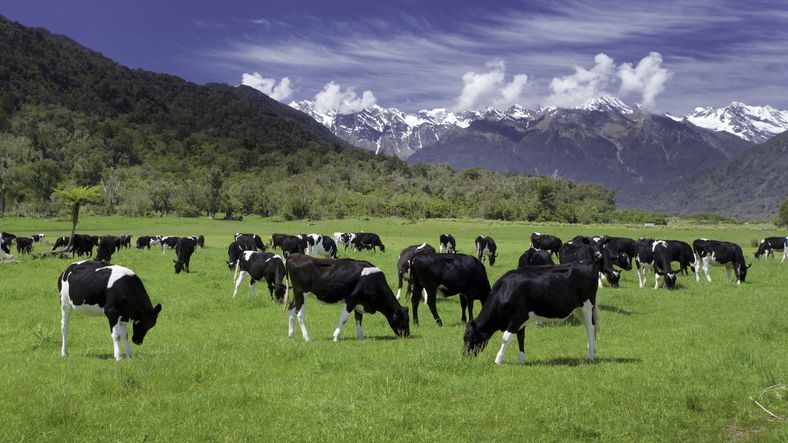The thousands of islands that make up Oceania hold some of the world’s most unique and diverse ecosystems, both on land and in the ocean.
But, the negative impacts of climate change are putting the region’s once abundant supply of food at risk.
In particular, rising sea levels and temperatures pose a threat to both natural ecosystems and the livelihoods of those who rely on the ocean as a source of income and food.
Further inland, climate change is producing cyclones, increased rainfall and other severe weather events that can impact food production. The thousands of small islands that make up Oceania have limited resources with which to deal with the aftermath of these events, making the region especially vulnerable.
In addition to — and frequently overlapping with — climate change, Oceania faces issues around water management, technology adoption and a changing geopolitical climate.
Transforming industries to change the food system
“What we need is a cultural shift,” agribusiness expert Hilton Collier said onstage last year at the E Tipu 2022 Boma Agri Summit. “Until we adopt a mindset that says we can all do better, we’re going to be challenged by bad decisions that have already been made.”
Among those things that can spark real change are taking a farmer-first approach to agriculture, adopting new innovations in food that can improve production and supply chains, and weaving indigenous perspectives and sustainability throughout every step, from farm to fork.
The E Tipu IFAMA 2023 World Conference, taking place June 19–20 in Ōtautahi Christchurch, New Zealand and virtually, will zero in on the idea of transforming the food and fiber industries to enhance Oceania’s primary industries — including agriculture, aquaculture, and marine industries.
Change that starts at the farm level
Transforming a food system isn’t all policy and strategy, however. Farmers themselves play what many consider the most vital role in this process, and many are now trying to own their futures based on market signals and consumer preference, rather than regulatory frameworks.
Silver Fern Farms produces about 30% of all lamb, beef and venison in New Zealand, and exports to 60 countries worldwide. In the last few years, it has worked with its farmers to turn farms into carbon sinks. This carbon “insetting” led to the release of Silver Fern Farm’s Net Carbon Zero Angus Beef line of products last year.
At E Tipu IFAMA 2023, Silver Fern Farms’ Kate Beddoe will share the company’s story of how it worked with its farmers to restructure not just operations but values and goals too.
Similarly, Mike Casey from NZ0/Forest Lodge Orchard will be detailing the good, the bad and the ugly of creating the world’s first 100% fossil-fuel-free orchard.
What struck me was the diversity of speakers, and the philosophy of feeding the mind, the body AND the heart, all within an agri-food context,” notes AgResearch’s Sue Zydenbos, who attended last year’s event.
From investment to innovation
One of the biggest barriers to food security for Oceania right now is accessibility of investment dollars.
For example, Oceania agrifoodtech startups raised just $317 million in 2022 compared with $5.1 billion in Europe and $8.6 billion in Asia, according to AgFunder’s latest Global AgriFoodTech Investment Report.
“Currently, there is no seamless integration and no clear exit or pathway past the first few hundred thousand or million dollars of research support,” New Zealand-based agri-food consultant Jack Keeys recently wrote on AFN.
“This leaves a glaring gap in scaling success, particularly in enabling access to the more substantial levels of capital that are required for growing a truly international agri-innovation business.”
To that end, speakers like Nathalie Whitaker, CEO of Toha Foundry Ltd, will join E Tipu IFAMA 2023 to discuss simplifying fundraising to create more impactful outcomes for the environment.
All of these elements — innovation, capital, farmers, and more — will take center stage at the event and set the scene for what it takes to look at these issues through a 500-year, multigenerational lens. For Oceania and the rest of the world, this is critical for climate mitigation and adaptation strategies and, ultimately, a safe, sustainable food system.
Visit the E Tipu IFAMA 2023 website to purchase tickets for in-person or virtual attendance.





